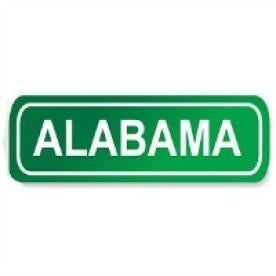The City Council of Oxford, Alabama, has enacted an ordinance regulating the utilization of bathroom or changing facilities within the City of Oxford, Alabama, making it unlawful for a person to use a bathroom or changing facility within the jurisdiction of the City that does not correspond to the person’s biological sex. The ordinance defines biological sex as the sex “stated on a person’s birth certificate.”
The Oxford ordinance is the third such legislation in the nation targeting transgender individuals’ access to restrooms, showers, and changing facilities. Both Mississippi and North Carolina have enacted legislation concerning gender-related access to restrooms and similar facilities. On April 5, 2016, Mississippi enacted the “Protecting Freedom of Conscience from Government Discrimination Act,” which prohibits the state government from taking action against a person establishing sex-specific standards or policies regarding access to restrooms, baths, showers, dressing rooms, lockers, and other intimate facilities. (See our article on the laws in Pennsylvania and Mississippi, Pennsylvania Governor Issues Executive Orders Protecting LGBT Rights.) North Carolina’s legislation prohibits local governments from permitting transgender individuals to use bathrooms or changing facilities that do not match the gender stated on the individual’s birth certificate. (See our article, North Carolina Legislation Removes LGBT Protections and Possible Wrongful Termination Claims.)
However, unlike the legislation in Mississippi and North Carolina, Oxford’s ordinance imposes fines and criminal penalties for non-compliance. A person violating the ordinance could be punished by a fine of up to $500 or up to six months’ incarceration. The ordinance is the first of its kind to criminalize bathroom usage based on gender identity.
It is unlikely that the Oxford ordinance will be the last such legislation to target bathroom access as a number of bills regarding LGBT laws are pending across the country. Both supporters and opponents of the legislation have been outspoken. For example, some retailers have criticized the legislation and expressed support for transgender persons utilizing restrooms or changing facilities that correspond with their gender identity and gender expression rather than biological sex. In response, conservative activist groups, such as the American Family Association, have called for a boycott of retailers that would allow what they perceive to be “men” from use of the women’s restrooms and dressing rooms. Additionally, the Family Research Council is circulating a petition in favor of the North Carolina legislation. Hence, these issues likely will remain in the forefront for some time and it is important for employers to be compliant with the ever changing LGBT state and local laws.





 />i
/>i
